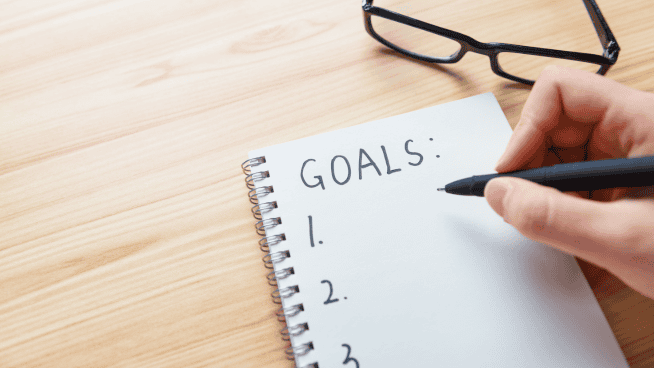Why Coaches Should Prioritize their own Mental Health
The selfless acts of a coach frequently cause them to disregard their own mental health. This is because coaches are so focused on infusing knowledge, not just to produce stronger athletes but to create better men and women. Unfortunately, coaches often get caught in a mental crossfire, sacrificing their well-being so their players can achieve success.
Coaches are leaders, not invincible. But to seem invincible, balance is the key.
Dealing with strategy, player performance, scheduling, and your personal life outside of sport is mentally demanding. Your thoughts and reasoning can go out of bounds quickly from the constant and insidious multitasking. Therefore, your mental health is essential to protect, so your emotions, thoughts, personality, and coaching can stay in sync.
“Coaching is unlocking a person’s potential to maximize growth.” John Whitmore
Transparency
“A lack of transparency results in distrust and a deep sense of insecurity.” Dali Lama
Although selflessness is a noble and kind act, it can be detrimental to your mental health over time. Too much of something causes imbalance. As imbalance grows, it wears down your wellbeing. And as a result, it affects your feelings, emotions, attitudes, personality, and, most significantly, the way you coach. These things change how you communicate, think, feel, and act. Often, it is unconscious to you, but your players will notice the break from the norm. If your players do not understand your shift mentally, it can confuse them and unconsciously affect their performance.
Hiding your problems will only affect your team. The better your athletes understand you, just like you understand them, builds trust. Trust opens communication. And communication initiates transparency. From this, transparency will foster an understanding that does not interfere with your player’s focus and performance.
Transparency is a two-way street and the most effective means of communication. You teach life through sport and sport through life. Once your players understand you, they will learn a valuable life lesson: empathy. Being off-limits is not an exception. In essence, your life will teach them skills they can use to enhance athletic abilities that they are unlikely to learn in sports.
“Transparency increases accountability and credibility.” Park Won Soon
Self-Care
“As you grow older, you will discover that you have two hands, one to help yourself and the other to help others.” Audrey Hepburn
Self-care is difficult. There doesn’t seem to be enough hours or minutes in the day to take care of yourself and your players. And essentially, you prioritize them first. However, you cannot just turn away a player who requires your assistance. So frequently, the open spaces on your calendar get filled while your personal agenda gets pushed back. As a result, tension and anxiety increase. Therefore, self-care techniques will help ease stress and reduce anxiety from getting worse. As they say on the airline, fasten your own mask first before helping secure another’s. Staying mentally balanced keeps you healthy and allows you to give a total commitment of yourself to your athletes.
You have a lot of ideas, thoughts, concerns, worries, and strategies swimming around in your head. So, like eating food for energy, try to get some quiet time to clear your mind. Quiet time will help balance and prioritize your thoughts and restore your anxiety into focus, returning to a sense of calm.
“Almost everything will work again if you unplug it for a few minutes, including you.” Anne Lamott
Balance
“Balance is not something you find. It is something you create.” Jana Kingsford
Your mental well-being and health have an impact on your coaching. When your mind isn’t working properly, you won’t be at your best, which will hinder your coaching abilities and judgment. This might result in unrealistic expectations and poor decision-making.
For good coaching to take place, your mind must be in the “zone,” which requires balance. The “zone” and “flow” are states where performance and coaching operate flawlessly to perfection. It simply happens.
Make time to balance your coaching and your life. Because as your energy wears down and becomes low, stress, problems, etc., feel worse than they actually are. And this can mask your feelings and emotions.
So, don’t skip exercise. Try to find a way to incorporate some quiet time or go for a walk. Externalize if you’re internalizing too much. Start taking better care of yourself if you’ve been neglecting yourself. Or, spread out your day if it is too condensed. You must be fresh and balanced to optimize and maximize your coaching potential and ability.
Find what you are doing too much of and look at doing the opposite. If you continue to imbalance your days, it will grind you down.
“We repeat what we don’t repair.” Mary Beth Keane
Here is a coach’s wellness survey you can do on page six to help you understand your stress and mental health better.
Coaching is an emotional roller coaster every day. It requires mental, physical, emotional, and spiritual energy from you. Many ups and downs and time-consuming problems frequently give you little time to adjust to other situations and conditions. This causes tension. Tension builds pressure. And when pressure is pushed too much, and too hard, it leads to a mental tsunami. And it is at this point that anxiety sets in and deviates to inefficiency and disarray.
When you neglect your mental health and wellness, you, the athlete, and the team suffer. So, learn to apply your words of wisdom to yourself too!
Be mindful to avoid mental disruption. Leadership is about being balanced, not perfect. It is essential to keep your qualities and abilities connected, thriving, and effective. An unbalanced mind loses that integration and the ability to function at its highest potential.
You, your team, and your players depend on you.
For more articles for coaches, CLICK HERE!
RECOMMENDED FOR YOU
MOST POPULAR
Why Coaches Should Prioritize their own Mental Health
The selfless acts of a coach frequently cause them to disregard their own mental health. This is because coaches are so focused on infusing knowledge, not just to produce stronger athletes but to create better men and women. Unfortunately, coaches often get caught in a mental crossfire, sacrificing their well-being so their players can achieve success.
Coaches are leaders, not invincible. But to seem invincible, balance is the key.
Dealing with strategy, player performance, scheduling, and your personal life outside of sport is mentally demanding. Your thoughts and reasoning can go out of bounds quickly from the constant and insidious multitasking. Therefore, your mental health is essential to protect, so your emotions, thoughts, personality, and coaching can stay in sync.
“Coaching is unlocking a person’s potential to maximize growth.” John Whitmore
Transparency
“A lack of transparency results in distrust and a deep sense of insecurity.” Dali Lama
Although selflessness is a noble and kind act, it can be detrimental to your mental health over time. Too much of something causes imbalance. As imbalance grows, it wears down your wellbeing. And as a result, it affects your feelings, emotions, attitudes, personality, and, most significantly, the way you coach. These things change how you communicate, think, feel, and act. Often, it is unconscious to you, but your players will notice the break from the norm. If your players do not understand your shift mentally, it can confuse them and unconsciously affect their performance.
Hiding your problems will only affect your team. The better your athletes understand you, just like you understand them, builds trust. Trust opens communication. And communication initiates transparency. From this, transparency will foster an understanding that does not interfere with your player’s focus and performance.
Transparency is a two-way street and the most effective means of communication. You teach life through sport and sport through life. Once your players understand you, they will learn a valuable life lesson: empathy. Being off-limits is not an exception. In essence, your life will teach them skills they can use to enhance athletic abilities that they are unlikely to learn in sports.
“Transparency increases accountability and credibility.” Park Won Soon
Self-Care
“As you grow older, you will discover that you have two hands, one to help yourself and the other to help others.” Audrey Hepburn
Self-care is difficult. There doesn’t seem to be enough hours or minutes in the day to take care of yourself and your players. And essentially, you prioritize them first. However, you cannot just turn away a player who requires your assistance. So frequently, the open spaces on your calendar get filled while your personal agenda gets pushed back. As a result, tension and anxiety increase. Therefore, self-care techniques will help ease stress and reduce anxiety from getting worse. As they say on the airline, fasten your own mask first before helping secure another’s. Staying mentally balanced keeps you healthy and allows you to give a total commitment of yourself to your athletes.
You have a lot of ideas, thoughts, concerns, worries, and strategies swimming around in your head. So, like eating food for energy, try to get some quiet time to clear your mind. Quiet time will help balance and prioritize your thoughts and restore your anxiety into focus, returning to a sense of calm.
“Almost everything will work again if you unplug it for a few minutes, including you.” Anne Lamott
Balance
“Balance is not something you find. It is something you create.” Jana Kingsford
Your mental well-being and health have an impact on your coaching. When your mind isn’t working properly, you won’t be at your best, which will hinder your coaching abilities and judgment. This might result in unrealistic expectations and poor decision-making.
For good coaching to take place, your mind must be in the “zone,” which requires balance. The “zone” and “flow” are states where performance and coaching operate flawlessly to perfection. It simply happens.
Make time to balance your coaching and your life. Because as your energy wears down and becomes low, stress, problems, etc., feel worse than they actually are. And this can mask your feelings and emotions.
So, don’t skip exercise. Try to find a way to incorporate some quiet time or go for a walk. Externalize if you’re internalizing too much. Start taking better care of yourself if you’ve been neglecting yourself. Or, spread out your day if it is too condensed. You must be fresh and balanced to optimize and maximize your coaching potential and ability.
Find what you are doing too much of and look at doing the opposite. If you continue to imbalance your days, it will grind you down.
“We repeat what we don’t repair.” Mary Beth Keane
Here is a coach’s wellness survey you can do on page six to help you understand your stress and mental health better.
Coaching is an emotional roller coaster every day. It requires mental, physical, emotional, and spiritual energy from you. Many ups and downs and time-consuming problems frequently give you little time to adjust to other situations and conditions. This causes tension. Tension builds pressure. And when pressure is pushed too much, and too hard, it leads to a mental tsunami. And it is at this point that anxiety sets in and deviates to inefficiency and disarray.
When you neglect your mental health and wellness, you, the athlete, and the team suffer. So, learn to apply your words of wisdom to yourself too!
Be mindful to avoid mental disruption. Leadership is about being balanced, not perfect. It is essential to keep your qualities and abilities connected, thriving, and effective. An unbalanced mind loses that integration and the ability to function at its highest potential.
You, your team, and your players depend on you.
For more articles for coaches, CLICK HERE!











